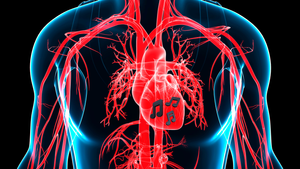Earlier today, a team of scientists were in attendance at a lunchtime concert at the St George’s venue in Bristol as part of a study into the effects of live music on the human body. Researchers were monitoring the heart rate of those watching the show by Bristol-based trio Yetii live, and of another group of people watching a stream of the performance in another room.
In an interview with the BBC, Professor Ian Gilchrist of the University Of Bristol explains, “We know that when audience members are immersed or engaged in content their heart rates become synchronised which is amazing. So this means we can use the heart rate as a marker of how engaged audiences are”.
The scientists hope that their research might help enhance live-streaming experiences, while also demonstrating the importance of in-person live events.
In another interview last year when undertaking similar monitoring during a theatre performance at Bristol Old Vic, Gilchrist said, “One important question is how the livestream experience differs from the live experience in the theatre. This information might help us discover how we can film the production differently to try and at least partially recreate the live experience”.
But in the BBC interview, he also notes that he hopes the research work can “amplify - locally, regionally, but also nationally - how important live events are and how important venues like this amazing venue are to our community and city. We know that since the pandemic a number of live venues had reduced numbers turning up to events, so we want to really highlight what’s special about the live experience”.
The project is part of the government-funded MyWorld initiative, which is based in the South West and is exploring “the future of creative technology innovation by pioneering new ideas, products and processes”.

